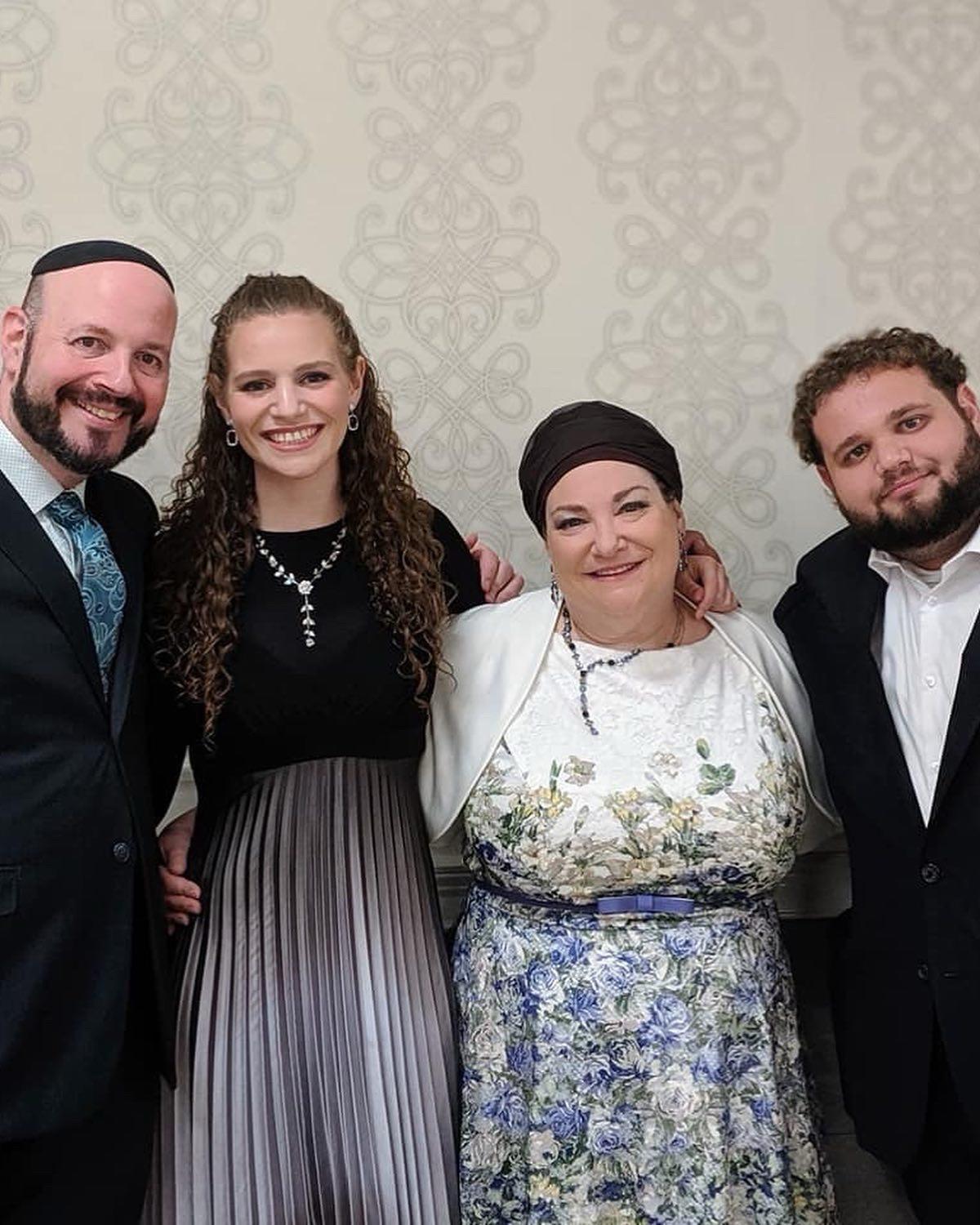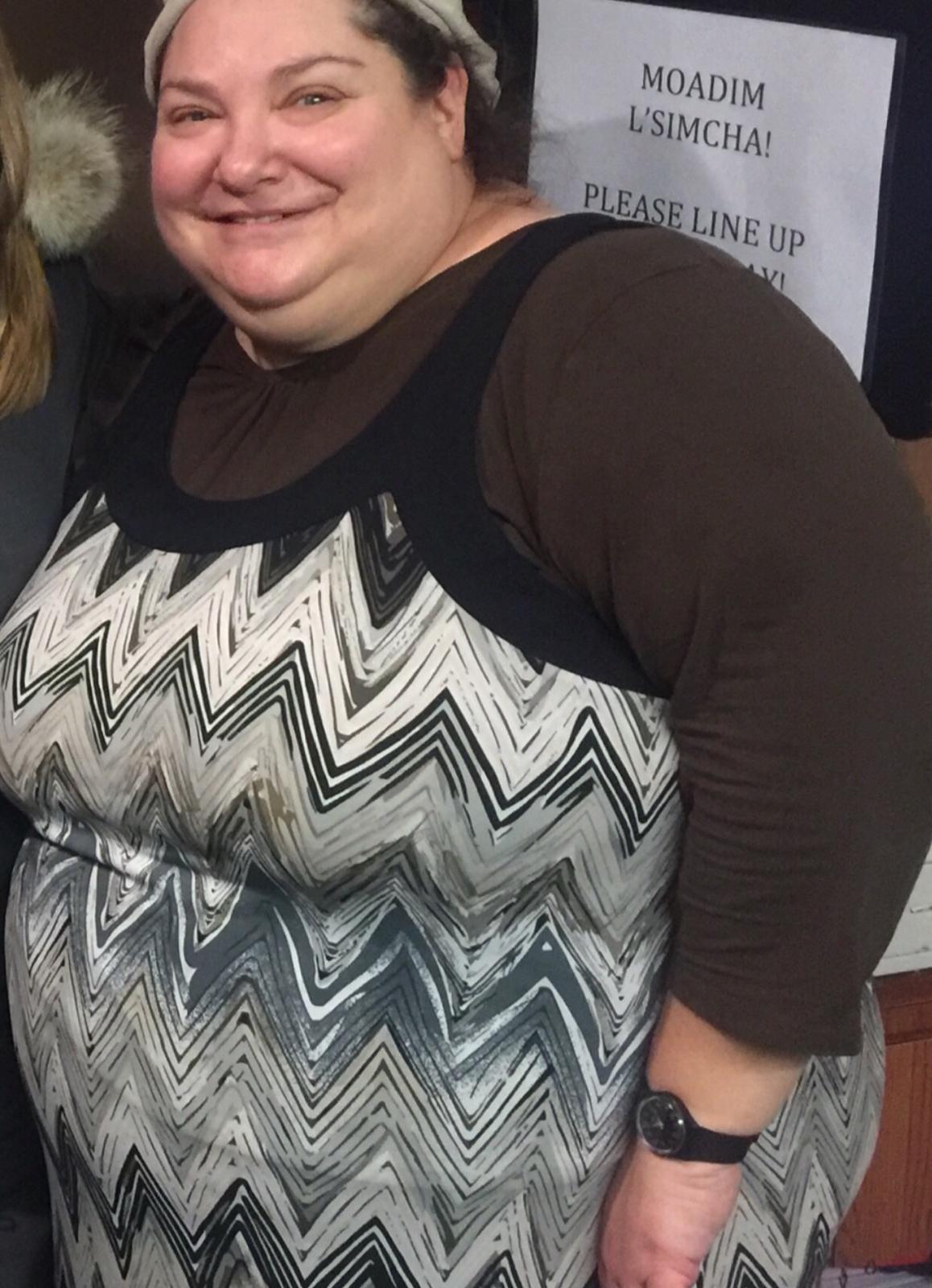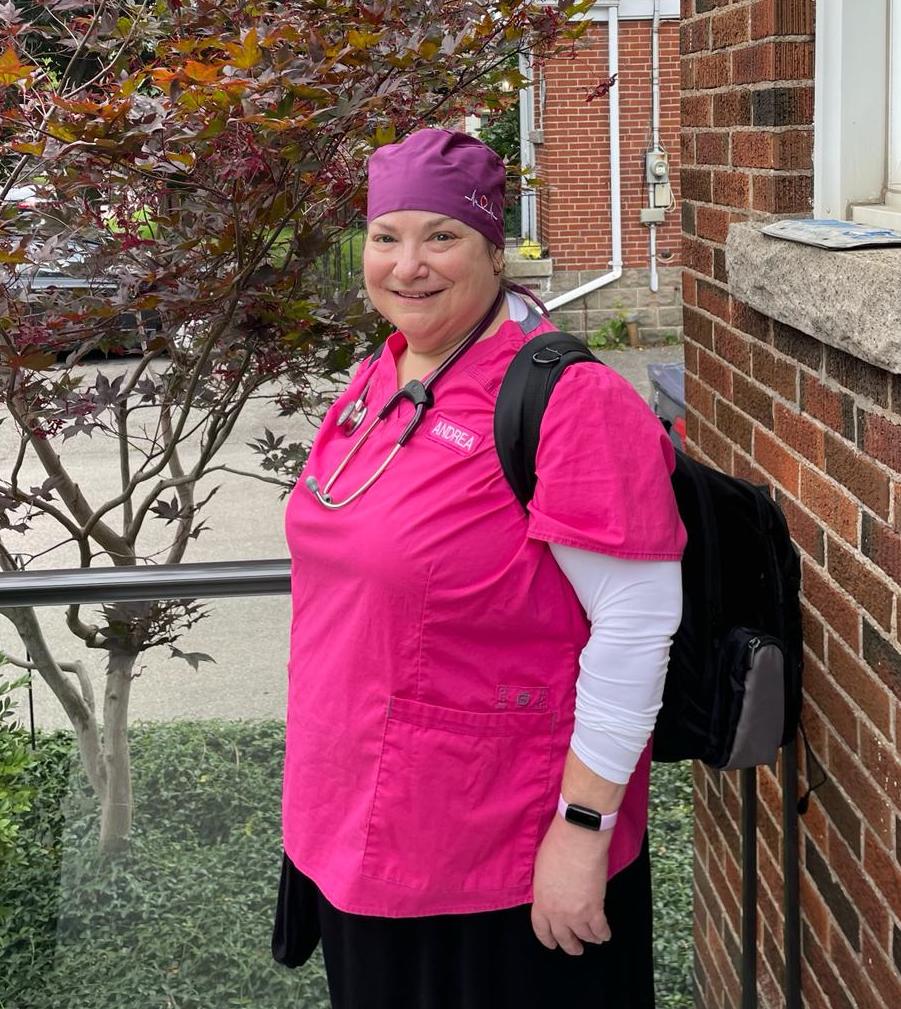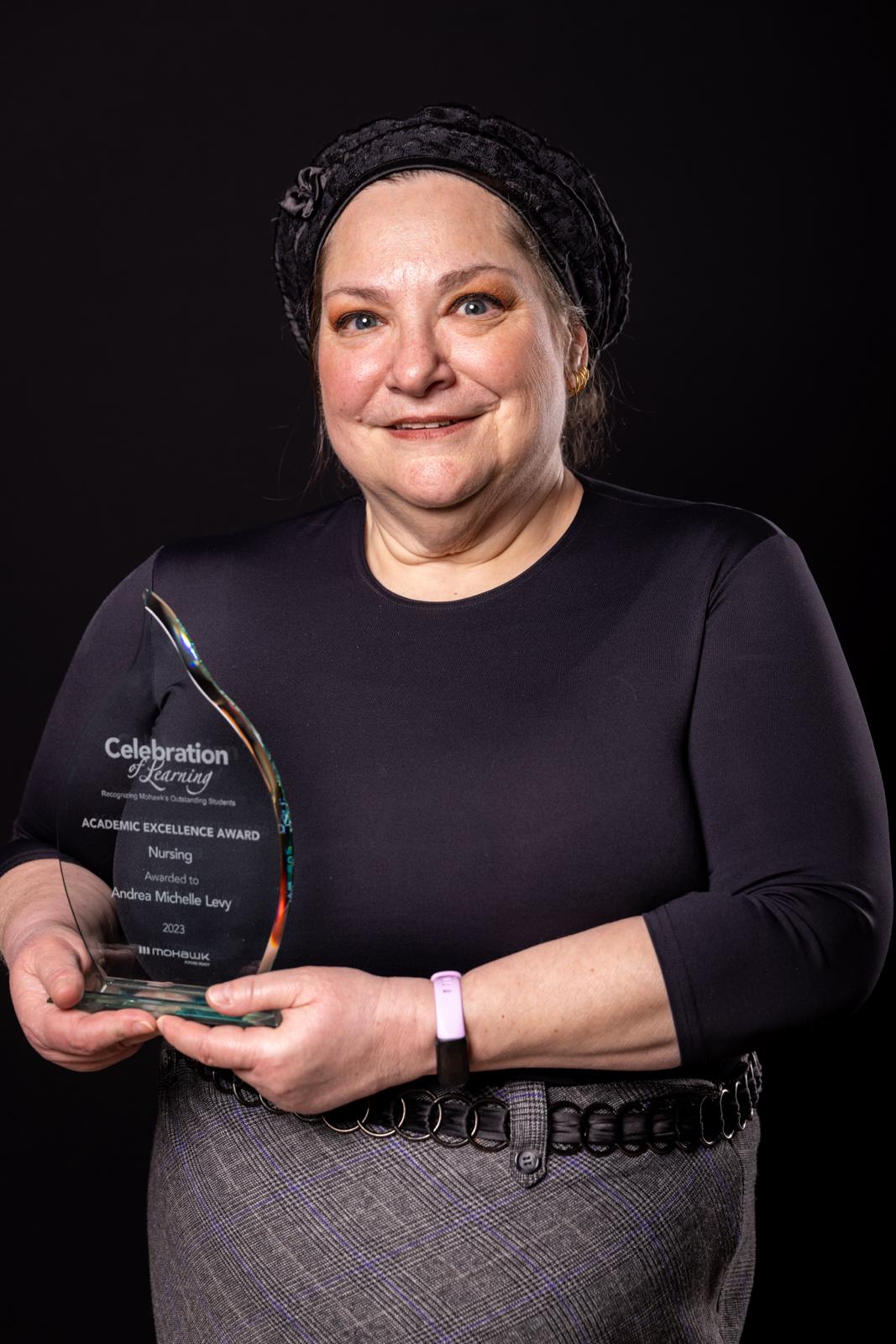By Maria Fleet
Andrea Levy comes across as someone you can count on. In conversation, she tends toward a rapid-fire delivery of practical details, trenchant observations and long digressions that always return to the point at hand. She gives the impression of being both a no-nonsense dynamo and someone who can enjoy a good laugh all at the same time. When asked to describe herself, she says, “I’m very social… I guess I’m funny, and my husband would say I’m amazing!”
She’s the kind of person an employer can call for information years after she’s left the job. She once worked as an administrator for a construction firm, keeping records of all the large projects. “Three years later my boss would still be calling me to say, ‘Do you remember what binder you put this in?’ and I’d be like, ‘Yes I do!’”
She’s had, as she puts it, a “jack of all trades kind of work life.”
She was an at-home mom for a while (she has two kids now in their 20’s), ran a children’s day care, and had her own catering business. She also operated a seasonal kosher restaurant in Niagara Falls, Ontario. As part of their Orthodox Jewish community in Hamilton, Ontario, she and her husband open their home to guests from the synagogue for a kosher meal each Sabbath.

Andrea with her husband & kids
At 56, Andrea is working on her nursing degree – as she puts it, “geeking out on diabetes and obesity” — and hoping to make a mark in health care, diabetes education, and the treatment of obesity in her community.
Andrea has carried extra weight since around the age of eight, when her pediatrician, she remembers, “was mortified that I’d gained 20 pounds in a year.”
Ever since, for the next 45 years, she struggled to control her weight, with little success. “I did every diet,” she says. “I got up as high as 315 pounds – I’m 5’1” – and I could never control anything.”
She refers to her eating during most of her life as “maniacal” and “disordered.” She worked with her doctor and consulted an anxiety clinic at her local hospital, but nothing worked.

Andrea, 2017
About six years ago, she was running her catering business and on her feet a lot, working up to 16 hours straight – and she knew something in her life had to give.
“I was running around as a caterer, …I weighed 315 pounds, my back hurt all the time. I had a thigh that was numb most of the time… I was extremely uncomfortable all of the time,” Andrea says.
“I was sure that I was gonna drop dead,” she remembers, “and there was nothing I could do about it – I just had this constant sense of impending doom.”
A visit to the eye doctor gave dark shape to that sense of doom. She had retinopathy, which has only a handful of causes. High blood pressure was ruled out, but her blood glucose level was the problem. Her condition could lead to blindness, she was told, if she didn’t bring her blood sugar under control.
“Generally speaking, somebody knows they’re diabetic by the time they get that (retinopathy),” Andrea explains. “I didn’t – I was pre-diabetic — so it was a very odd situation. And it was a very scary situation because here was I, who couldn’t follow a diet for a day, being told I had to get my blood sugar down and stable and keep it that way forever.”
To Andrea, it felt like a hopeless situation. “I couldn’t believe that… I could go blind, and I needed a diet to save me – you know, that was just the ultimate irony,” she adds.

Andrea heading to work
Andrea went home and started researching. She loves digging into new things, and this was a particularly pressing research mission.
During her deep dive she was struck by the blog post of a man with type 1 diabetes who wrote about keeping his blood sugar more stable if he stuck to a low-carbohydrate diet. He’d conducted an experiment on himself, Andrea remembers, and had graphed the results.
The very real possibility of losing her sight focused Andrea’s resolve. “I looked up each food I ate to learn how it would affect my blood glucose,” she relates. “On day two, at lunch – which was a two-course meal for religious purposes – I had a bizarre feeling… I realized that I was full. My body was telling me not to eat any more food! I hadn’t felt truly full in 45 years!”
She was able to stick to eating a low carbohydrate diet – not with the intention of losing weight, but of keeping her blood sugar stable, and staving off blindness and the other potential consequences of diabetes. She concentrated on whole foods that were low in carbohydrates and didn’t cause her blood glucose level to spike.
And that approach has worked to stabilize her blood sugar. In the process she’s lost about 100 lbs. – though that was not really her goal. She considers herself now to be “relatively peaceful” with food.
She says that her weight loss has resolved a host of health problems, including chronic migraines, tongue ulcers, limb swelling and numbness. After keeping her weight quite stable for six years, Andrea still worries about potential weight regain. She’s exploring how bariatric surgery might help her maintain her weight going forward.
Her doctor, she says, has been surprised at her progress – so impressed that he urged her to go to nursing school to be able to share her experience and work with patients who struggle with obesity and diabetes.
So, it’s no surprise that Andrea’s still very busy – but now her days are spent studying for her nursing degree and participating in clinical practice as part of her course work. She says her 20-something fellow students marvel at her energy. She’s on track to graduate with a Bachelor of Science in nursing in April of 2025.
Andrea emphasizes that what worked for her won’t work for everyone because each person’s physiology is unique. But her goal in her new career is to help people struggling with excess weight and diabetes to become health-literate and find their own personal health solutions. And she can offer her own story as inspiration.

Winning the Mohawk College of Nursing Celebration of Learning Award, 2023
***
Get a weekly text to help you stay on track with your health goals! Click here to sign up.
Join our Facebook support group for weight management tips, recipes, and more.
Diet and exercise alone aren’t enough to help many people reach a healthier weight. Medical treatments are needed to address the biological changes happening in our bodies that can drive weight regain. To find a physician near you who specializes in weight management, click here.
This article was sponsored by Novo Nordisk. All content is created independently by My Weight – What To Know with no influence from Novo Nordisk.

